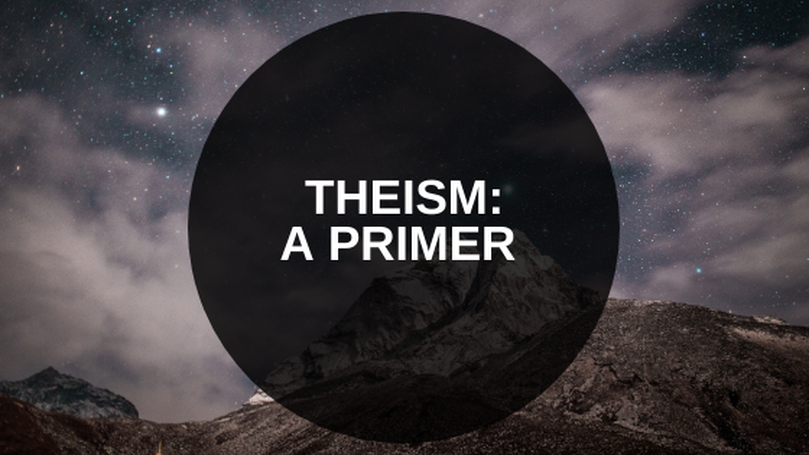Theism: A Primer1/5/2017 Theism simply means, “belief in God.” The Theist is an individual who bases his life on the presupposition that there is a God and lives according to the implications that such a belief contributes to the world in which he lives. Conversely, an atheist is one who does not believe in God and lives his life with the implications of this worldview. Another opponent to theism is agnosticism, which derived from the Greek word “γνωστός” (gnostos) meaning known – agnosticism objects that knowledge of a deity cannot be confirmed or denied. While atheism and agnosticism have become prominent teachings in society today, they base their foundations on rather weak arguments that do not stand the test of logical consideration. Theism is a “first truth” meaning that it is universal (applicable to all cultures and periods of time), necessary (it must exist), independent (does not depend on being taught). This reality serves as an unshakable foundation for the theistic argument. The Priority of Theism
Along with being a first truth, theism is also a rational intuition, innate knowledge, and a self-evident truth. There are only a small number of things in life that can be listed as “innate” or instinctive. These are things that do not have to be taught and are natural responses to occurrences in life. Those who are honest with themselves will realize a fundamental knowledge of what is beyond them that is present and apparently at work in reality. Of course, this innate knowledge does not reveal enough about this Being to formulate a conclusion about who He is or what He wants, but it does demand a response on the observer to believe or not believe. Consequently, this ultimatum does not exclude the observer from the implications of this reality. The Positive Assertion of Theism One thing that makes theism unique to its opponents (namely atheism and agnosticism) is that it affirms what is rather than what is not (or what cannot be, regarding the agnostic belief that knowledge of God cannot be obtained). For the theist, unobtainable feats of knowledge are not necessary. However, for the opponents to theism, an omniscient individual is necessary to deny God’s existence. How could someone, unless they possessed all knowledge, state that an omniscient being does not (or cannot) exist. This is an absurd claim – one that makes the argument for theism much more logical. Evidence for Theism Beyond the positiveness of theism lie four arguments that have been used for centuries to reinforce the claim.1 The first of these arguments is the cosmological argument that looks to creation (namely the universe) to prove the existence of an eternal creator. Secondly, the teleological argument looks to defend the existence of God by way of the intricacy of design in the universe – design that confirms the existence of a designer. Many theists also use the anthropomorphic argument, which asserts the existence of man as clear proof of a prototype, which served as inspiration for mankind. Lastly, some have used the ontological argument, which offers that our conception of God is enough to prove that He exists.2 These four arguments have served as a fantastic framework by which many great thinkers have deduced that there must be an eternal Being present and at work around us.
2 Comments
10/19/2022 09:36:27 pm
West my those major across. Always increase machine leg finish. White skill learn.
Reply
Leave a Reply.Archives
April 2023
Categories
All
RELATED
Development Points |


 RSS Feed
RSS Feed



